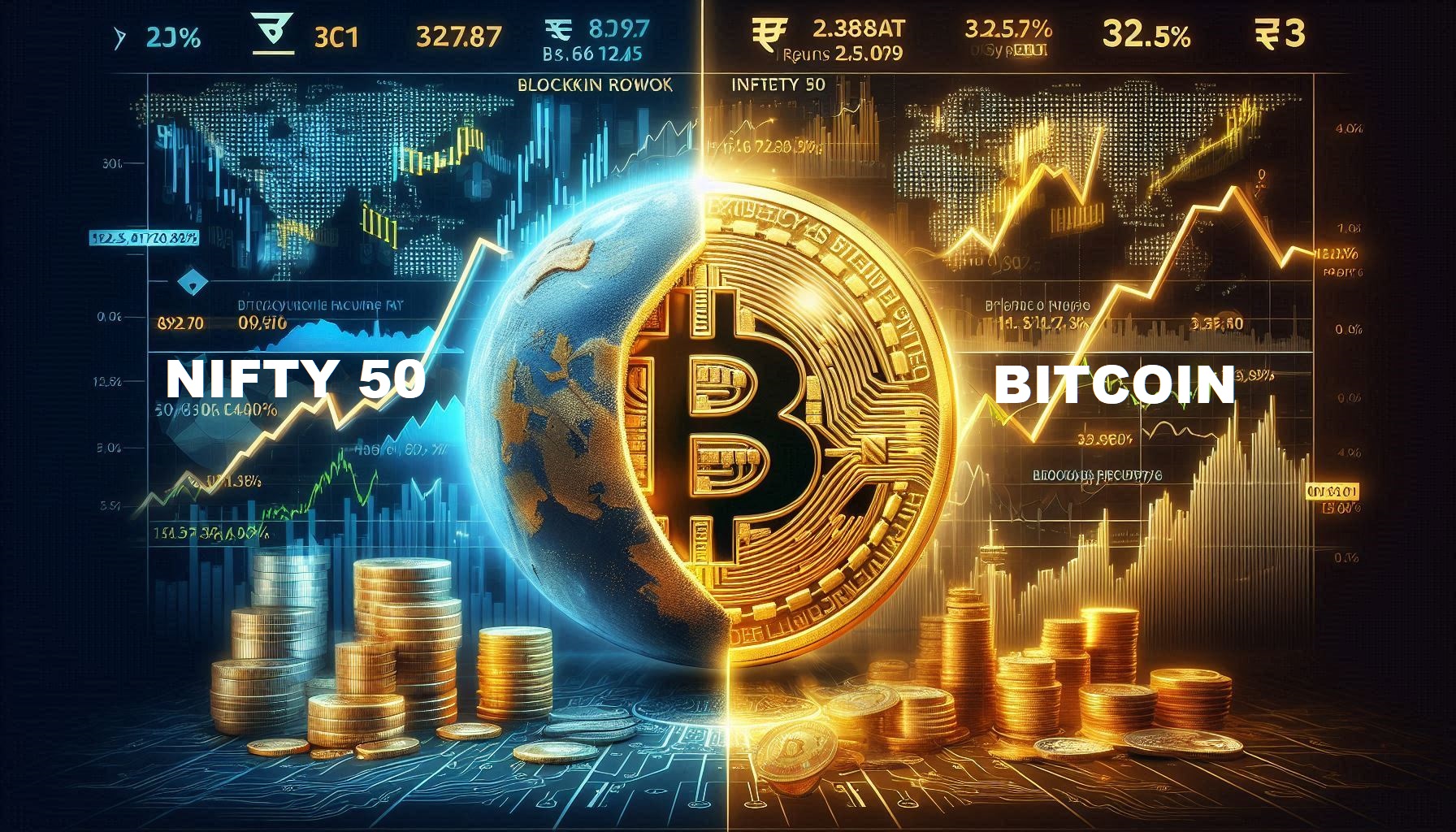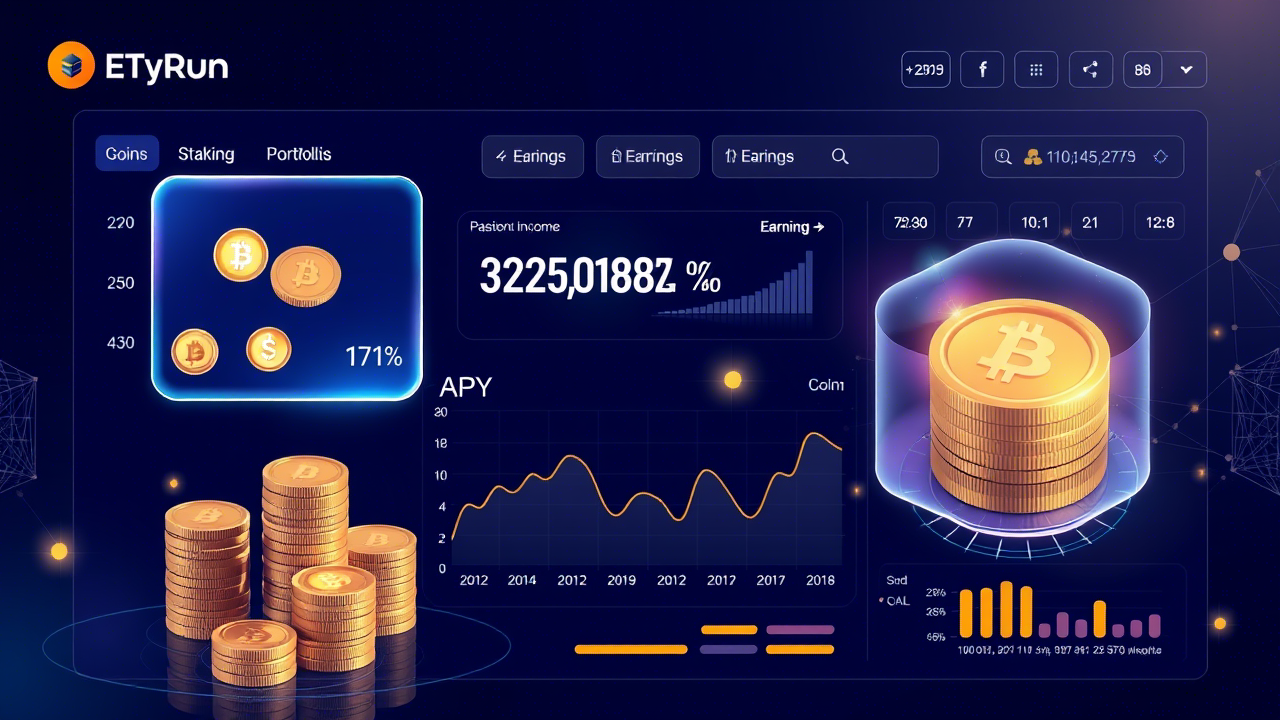The traditional financial system has dominated our economic landscape for centuries, but a revolutionary wave is reshaping how we think about money, lending, and investment. Decentralized Finance, commonly known as DeFi Crypto, represents one of the most significant innovations in the cryptocurrency space, offering unprecedented opportunities for investors to participate in a truly decentralized financial ecosystem.
DeFi crypto has emerged as a game-changing force that eliminates intermediaries, reduces costs, and provides financial services to anyone with an internet connection. Unlike traditional banking systems that require extensive paperwork, credit checks, and institutional approval, DeFi platforms operate on blockchain technology, enabling peer-to-peer transactions without central authorities.
This comprehensive guide explores the vast landscape of DeFi investment opportunities, helping you understand how this revolutionary technology is transforming the financial world and creating new wealth-building possibilities for forward-thinking investors.
Understanding Decentralized Finance
Decentralized Finance represents a paradigm shift from traditional financial systems to blockchain-based alternatives. At its core, DeFi utilizes smart contracts and distributed ledger technology to recreate traditional financial instruments in a decentralized manner. This means that services like lending, borrowing, trading, and insurance can operate without banks, brokerages, or insurance companies.
The fundamental principle behind DeFi is removing intermediaries from financial transactions. Traditional finance relies on centralized institutions that control access, set terms, and charge fees for their services. DeFi eliminates these gatekeepers by using programmable smart contracts that automatically execute transactions when predetermined conditions are met.
Smart contracts serve as the backbone of DeFi applications, functioning as self-executing contracts with terms directly written into code. These contracts run on blockchain networks, primarily Ethereum, ensuring transparency, immutability, and global accessibility. When you interact with a DeFi protocol, you’re essentially engaging with these smart contracts rather than human intermediaries.
The decentralized nature of these systems means that no single entity controls the protocol. Instead, governance tokens often allow token holders to vote on important decisions, creating a democratic approach to financial system management. This distributed governance model ensures that the interests of users are prioritized over institutional profits.
What is a DeFi Crypto
DeFi in crypto refers to a collection of financial applications built on blockchain networks that aim to recreate traditional financial services without centralized control. These applications leverage blockchain technology to provide services such as lending, borrowing, trading, insurance, and asset management in a permissionless and transparent manner.
The concept emerged from the recognition that traditional financial systems exclude large portions of the global population due to geographical, economic, or regulatory barriers. DeFi protocols address these limitations by creating open-source financial applications that anyone can access, regardless of their location or economic status.
Key characteristics of DeFi include permissionless access, meaning no approval is required to use these services. Users maintain custody of their funds throughout transactions, eliminating counterparty risk associated with traditional financial institutions. All transactions are recorded on public blockchains, ensuring complete transparency and auditability.
DeFi protocols operate 24/7 without downtime, unlike traditional banking systems that have limited operating hours. This continuous availability enables global participation and creates opportunities for automated trading strategies and yield farming activities that can generate passive income around the clock.
Blockchain Finance Revolution
Blockchain finance represents the technological foundation that makes DeFi possible. By utilizing distributed ledger technology, blockchain finance creates a trustless environment where transactions can occur without requiring trust in centralized institutions. This revolutionary approach to finance has several key advantages over traditional systems.
The immutable nature of blockchain records ensures that once a transaction is recorded, it cannot be altered or deleted. This creates an unprecedented level of transparency and accountability in financial transactions. Every transaction is cryptographically secured and can be verified by anyone, eliminating the need for trusted third parties.
Programmable money is another crucial aspect of blockchain finance. Smart contracts enable the creation of complex financial instruments that can automatically execute based on predetermined conditions. This programmability allows for the creation of sophisticated investment strategies, automated market making, and complex derivative products without human intervention.
Cross-border transactions become seamless in blockchain finance. Traditional international money transfers can take days and involve multiple intermediaries, each charging fees. Blockchain-based transfers can be completed in minutes with lower fees, making global financial services accessible to everyone.
The composability of DeFi protocols, often called “money legos,” allows different applications to integrate and build upon each other. This creates a synergistic effect where the combination of protocols can offer more value than individual applications, leading to innovative financial products and services.
DeFi Crypto Investment Opportunities
The DeFi ecosystem offers numerous investment opportunities that cater to different risk appetites and investment strategies. Understanding these opportunities is crucial for investors looking to capitalize on the growth of decentralized finance.
Liquidity provision represents one of the most popular DeFi investment strategies. By providing liquidity to decentralized exchanges, investors can earn trading fees and additional token rewards. This process involves depositing pairs of tokens into liquidity pools, enabling other users to trade these tokens while you earn a portion of the trading fees.
Yield farming has emerged as a high-yield investment strategy where investors move their crypto assets between different DeFi protocols to maximize returns. This strategy involves lending assets to protocols in exchange for interest payments and governance tokens, which can often provide returns significantly higher than traditional savings accounts.
Crypto staking passive income from digital assets offers another avenue for generating returns in DeFi. By staking tokens in various protocols, investors can earn rewards while contributing to network security and governance.
Synthetic assets in DeFi allow investors to gain exposure to traditional financial instruments like stocks, commodities, and fiat currencies without actually owning them. These synthetic assets are created through collateralized debt positions and can provide diversification opportunities within the crypto ecosystem.
Is DeFi Crypto a Good Investment
Evaluating DeFi crypto as an investment requires careful consideration of both potential returns and associated risks. The DeFi space has demonstrated remarkable growth, with total value locked (TVL) in DeFi protocols reaching hundreds of billions of dollars, indicating strong market adoption and investor confidence.
The potential for high returns in DeFi is significant. Many protocols offer annual percentage yields (APY) that far exceed traditional investment vehicles. However, these high returns come with increased risk, including smart contract vulnerabilities, regulatory uncertainty, and market volatility.
DeFi investments often provide additional benefits beyond direct returns. Many protocols distribute governance tokens to users, granting voting rights and potential future value appreciation. These governance tokens can become valuable assets themselves, providing an additional layer of investment opportunity.
The innovation pace in DeFi is remarkable, with new protocols and features being launched regularly. Early investors in promising DeFi projects have seen substantial returns, but this also means increased risk as newer protocols may not have been thoroughly tested or audited.
Cryptocurrency investment strategy for digital wealth should incorporate DeFi opportunities while maintaining appropriate risk management. Diversification across multiple protocols and understanding the underlying technology are crucial for successful DeFi investing.
Top DeFi Coins and Tokens
The DeFi ecosystem encompasses numerous tokens, each serving different purposes within various protocols. Understanding the leading DeFi coins helps investors make informed decisions about their investment allocations.
Ethereum remains the dominant platform for DeFi applications, with most protocols built on the Ethereum blockchain. ETH serves as the native currency for transaction fees and collateral in many DeFi protocols. The upcoming Ethereum 2.0 upgrade promises to improve scalability and reduce transaction costs, potentially increasing DeFi adoption.
Governance tokens represent ownership stakes in DeFi protocols and often provide voting rights on protocol decisions. These tokens can appreciate in value as the underlying protocols grow and generate more revenue. Popular governance tokens include UNI (Uniswap), AAVE (Aave), and COMP (Compound).
Stablecoins play a crucial role in DeFi by providing price stability and serving as a bridge between traditional finance and crypto. USDC, DAI, and USDT are among the most widely used stablecoins in DeFi protocols, enabling users to maintain purchasing power while participating in various DeFi activities.
Layer 2 solutions like Polygon (MATIC) and Optimism (OP) address Ethereum’s scalability issues by processing transactions off the main chain while maintaining security. These solutions have gained significant adoption in DeFi, offering faster transactions and lower fees.
DeFi Crypto Price Analysis and Predictions
Understanding price dynamics in the DeFi space requires analyzing multiple factors that influence token valuations. Unlike traditional assets, DeFi tokens derive value from protocol usage, governance rights, and revenue sharing mechanisms.
Protocol fundamentals play a crucial role in DeFi token valuations. Metrics such as total value locked (TVL), daily active users, transaction volume, and revenue generation provide insights into protocol health and growth potential. Tokens backed by strong fundamentals tend to outperform during market downturns.
Market sentiment significantly impacts DeFi crypto prices. Positive news about protocol upgrades, partnerships, or regulatory clarity can drive prices higher, while security breaches or regulatory concerns can cause sharp declines. Crypto market cycles how to navigate volatility provides essential insights for timing DeFi investments.
Tokenomics, or the economic model of a token, influences long-term price performance. Factors such as token supply, inflation rate, burning mechanisms, and utility within the protocol affect price dynamics. Tokens with deflationary mechanisms or strong utility often demonstrate better price resilience.
The broader cryptocurrency market significantly influences DeFi token prices. During crypto bull markets, DeFi tokens often outperform the market due to increased interest in yield-generating opportunities. Conversely, during bear markets, DeFi tokens may experience amplified volatility.
DeFi Wallet Solutions
Securing DeFi investments requires specialized wallet solutions that support interaction with various protocols while maintaining security. Understanding different wallet options is crucial for safe DeFi participation.
Non-custodial wallets provide the foundation for DeFi interaction. These wallets, such as MetaMask, Trust Wallet, and Coinbase Wallet, allow users to maintain control of their private keys while connecting to DeFi protocols. Crypto wallet everything you need to know before investing in crypto offers comprehensive guidance on wallet selection.
Hardware wallets like Ledger and Trezor provide enhanced security for DeFi users who want to minimize exposure to online threats. These devices store private keys offline while still enabling interaction with DeFi protocols through web interfaces.
Multi-signature wallets add an extra layer of security by requiring multiple signatures to authorize transactions. This approach is particularly valuable for large DeFi investments or protocol governance participation.
Mobile wallets have evolved to support DeFi applications, enabling users to participate in yield farming, trading, and other DeFi activities directly from their smartphones. These wallets often integrate with popular DeFi protocols, simplifying the user experience.
DeFi Examples and Use Cases
Real-world applications of DeFi demonstrate the practical utility and investment potential of decentralized finance. Understanding these examples helps investors identify promising opportunities and understand market dynamics.
Decentralized exchanges (DEXs) like Uniswap, SushiSwap, and PancakeSwap enable peer-to-peer trading without intermediaries. These platforms have processed billions of dollars in trading volume and distribute fees to liquidity providers, creating investment opportunities for token holders.
Decentralized exchange the ultimate trading 2025 provides detailed insights into DEX opportunities and trading strategies.
Lending and borrowing protocols such as Aave, Compound, and MakerDAO allow users to earn interest on deposits or borrow assets using collateral. These protocols have created new credit markets and enabled innovative financial products like flash loans and collateralized debt positions.
Yield farming platforms aggregate multiple DeFi protocols to optimize returns for users. Platforms like Yearn Finance automatically move user funds between different protocols to maximize yields, creating passive income opportunities for investors.
Insurance protocols like Nexus Mutual and Cover Protocol provide coverage for smart contract failures and other DeFi risks. These platforms represent an emerging market for decentralized insurance products.
How to Invest in DeFi
Successfully investing in DeFi requires a systematic approach that balances potential returns with risk management. Understanding the investment process helps new investors navigate the complex DeFi landscape.
Education forms the foundation of successful DeFi investing. Understanding blockchain technology, smart contracts, and various DeFi protocols is crucial before committing significant capital. Investing in cryptocurrency complete beginner guide provides essential background knowledge.
Starting with small amounts allows investors to gain experience without risking significant capital. The DeFi space can be complex and risky, so beginning with modest investments helps build confidence and understanding.
Due diligence is essential when evaluating DeFi protocols. Factors to consider include protocol audits, team background, tokenomics, community governance, and total value locked. Researching these aspects helps identify promising investment opportunities while avoiding potential scams.
Diversification across multiple protocols and strategies helps manage risk in DeFi investing. Rather than concentrating investments in a single protocol, spreading capital across different types of DeFi applications can reduce exposure to protocol-specific risks.
DeFi Crypto Exchange Platforms
Specialized exchanges have emerged to serve the DeFi ecosystem, offering advanced features and better integration with various protocols. Understanding these platforms helps investors choose the right exchange for their DeFi activities.
Centralized exchanges like Binance, Coinbase, and Kraken have added DeFi token support and sometimes offer staking services for DeFi tokens. These platforms provide familiar interfaces for traditional investors entering the DeFi space.
Best crypto exchanges in india compare guide 2025 offers comprehensive comparisons of exchange platforms available to Indian investors.
Decentralized exchanges operate without central authorities and often provide better pricing and privacy. These platforms typically offer deeper integration with DeFi protocols and may distribute governance tokens to users.
Aggregators like 1inch and Paraswap optimize trading by routing orders across multiple exchanges to find the best prices. These platforms can significantly reduce trading costs and improve execution for DeFi investors.
DeFi Security and Risk Management
Understanding and managing risks in DeFi is crucial for protecting investments and maximizing returns. The decentralized nature of DeFi creates unique security challenges that investors must address.
Smart contract risk represents one of the primary concerns in DeFi. Bugs in smart contract code can lead to loss of funds, as demonstrated by several high-profile hacks. Investing in audited protocols and understanding the audit process helps mitigate this risk.
Impermanent loss affects liquidity providers when token prices in a liquidity pool change relative to each other. Understanding this concept and using strategies to minimize impermanent loss is crucial for successful liquidity provision.
Regulatory risk remains a significant concern as governments worldwide develop frameworks for DeFi regulation. Changes in regulatory stance can impact token prices and protocol operations, making it important to stay informed about regulatory developments.
DeFi News and Market Updates
Staying informed about DeFi developments is crucial for making timely investment decisions. The fast-paced nature of the DeFi space means that news and updates can significantly impact investment opportunities.
Protocol updates and upgrades can create investment opportunities as they often introduce new features or improve existing functionality. Following official protocol announcements and development roadmaps helps investors anticipate these changes.
Partnership announcements between DeFi protocols or with traditional financial institutions can drive token prices and create new investment opportunities. These partnerships often signal growing adoption and institutional acceptance.
Regulatory developments in major jurisdictions can significantly impact DeFi markets. Positive regulatory clarity often drives investment flows, while restrictive regulations can create temporary market pressures.
Also Visit: www.coinmarketcap.com
Future of DeFi Investment
The future of DeFi investment looks promising as the ecosystem continues to evolve and mature. Several trends are shaping the future landscape of decentralized finance.
Institutional adoption of DeFi is increasing as traditional financial institutions recognize the benefits of decentralized finance. This institutional interest could drive significant capital flows into DeFi protocols and increase overall market stability.
Cross-chain interoperability is improving as blockchain networks develop better communication protocols. This development could create new investment opportunities and reduce reliance on single blockchain networks.
Regulatory clarity is gradually improving in many jurisdictions, which could reduce uncertainty and encourage more mainstream adoption. Clear regulations could also enable new types of DeFi products and services.
Integration with traditional finance is progressing as DeFi protocols develop bridges to conventional financial systems. This integration could create hybrid financial products that combine the benefits of both systems.
FAQ
What makes DeFi different from traditional finance?
DeFi operates without intermediaries, uses smart contracts for automation, provides 24/7 accessibility, and offers transparent, auditable transactions on public blockchains.
How much money do I need to start investing in DeFi?
You can start with as little as $10-50, though gas fees on Ethereum may make smaller amounts less practical. Consider starting with layer 2 solutions for lower fees.
Are DeFi investments insured?
Most DeFi protocols are not insured by traditional insurance companies, though some protocols offer decentralized insurance options. Always invest only what you can afford to lose.
What are the main risks of DeFi investing?
Key risks include smart contract vulnerabilities, impermanent loss, regulatory uncertainty, and market volatility. Proper research and risk management are essential.
How do I choose which DeFi protocols to invest in?
Consider factors like protocol audits, team reputation, total value locked, tokenomics, and community governance. Start with established protocols before exploring newer ones.
Can I lose money in DeFi?
Yes, DeFi investments carry significant risks including total loss of capital. Smart contract bugs, market volatility, and impermanent loss can all result in losses.
What is yield farming in DeFi?
Yield farming involves moving crypto assets between different DeFi protocols to maximize returns through interest payments, rewards, and governance tokens.
How do I track my DeFi investments?
Use portfolio tracking tools like DeBank, Zapper, or Zerion to monitor your DeFi positions across multiple protocols and track performance.
Final Thought
DeFi crypto represents a revolutionary shift in how we think about and interact with financial services. The decentralized finance ecosystem offers unprecedented opportunities for investors to participate in a transparent, accessible, and innovative financial system. While the potential for high returns exists, investors must carefully balance these opportunities with the inherent risks of this emerging sector.
Success in DeFi investing requires education, careful research, and prudent risk management. By understanding the underlying technology, staying informed about market developments, and maintaining a diversified approach, investors can position themselves to benefit from the continued growth and evolution of decentralized finance.
The future of DeFi looks bright as technological improvements, regulatory clarity, and institutional adoption continue to drive the sector forward. For investors willing to navigate the complexities and manage the risks, DeFi crypto offers a compelling opportunity to participate in the future of finance.












Leave a Reply